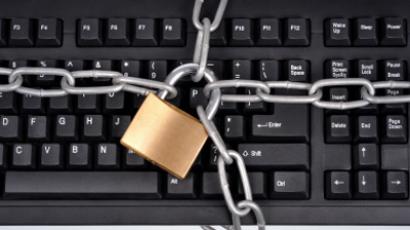Buckling under the pressure? Senate postpones PIPA vote
US Senate Majority Leader Harry Reid has postponed voting on an online piracy prevention bill originally scheduled for next week. Observers say the Senate is retreating after millions of outraged Internet users took part in protest campaigns.
Reid announced Friday that a procedural vote on the Protect Intellectual Property Act (PIPA) is postponed "in light of recent events." The events in question involve Internet giants like Google, Wikipedia, Mozilla, Reddit, BoingBoing, WorldPress and others protesting the Internet-regulating bills. Wikipedia blocked its services for 24 hours to attract people’s attention to the subject, while Google has collected over 7 million signatures for its petition against the acts. As the result, 18 Senators – including seven of the bills' original co-sponsors – turned against the proposed legislations.But despite tensions, Reid said he is optimistic about reaching a "compromise" in the coming weeks.If adopted, PIPA would allow the Justice Department and copyright holders to seek court orders against foreign websites accused of copyright violations. The legislation is strongly supported by the entertainment industry and other businesses citing millions of dollars in lost annual income due to intellectual property theft.Meanwhile, Internet-related companies categorically oppose PIPA, saying it would put an end to free speech and provide legal basis for censorship of the Internet.
‘SOPA and PIPA could give US global online jurisdiction’
Patrick Hayes, a reporter for the online magazine 'Spiked', thinks that if put through, SOPA and PIPA will result in “the US government designating other sites as potential rogue … and pursuing them internationally.”“This legislation … could potentially have massive impact upon the Web as we know it internationally, not just in America. It could mean that they can effectively have jurisdiction to close down sites worldwide,” he explained.Commenting on the US government reaction to the recent protests over the Internet, Hayes said that they definitely had an impact on the authorities.“The Obama administration is getting very very nervous indeed… They are going to buckle under pressure.”“At the same time,” he said “they have arrested people in New Zealand and shut down their website and it doesn’t really show that they are listening to public concerns.”Hayes thinks that the solution is in the debate, and not in closing down every unwanted website – which he says is “the way of censorship and authoritarianism.”He believes that many people working for such websites are doing something quite innovative and dynamic. “The reason why websites like Megaupload are so popular is because they provide fantastic service to users the world over,” he said. “Let`s work with these people. Let`s develop a more dynamic Web in collaboration with people, rather than just trying to shut it down or strangle it,” Hayes added.“It is very important that we don’t take the Internet that exists now for granted – and that we resist all of these attempts to regulate the web,” he asserted.Speaking about the actions of the Anonymous group, which reacted to the Megaupload shutdown by a series of hacking attacks on the websites of American authorities and entertainment moguls, Hayes said he does not completely agree with their tactics.“A problem with a lot of the Anonymous attacks is that they are closing down websites themselves… they are fighting censorship with censorship, which is to an extent problematic.”
Peter Bradwell, a campaigner from the UK-based Open Rights Group, says illegal online downloading only exists because the entertainment industry has failed to keep pace with consumers.“There is still a lot to do for the content industries to keep providing better services and legal alternatives, especially with movies, for example,” he told RT.“A reason why people pirate – not necessarily an excuse, but – if those films or TV shows they want to watch aren’t available legally, and if they can get them from an infringing source, then they are going to do so.”Bradwell also added that it is important to recognize that these kind of sites, called file hosts, can often be legitimate and important services. “There are rules about how they are supposed to respond quickly to reports of copyright infringement. We should be judging how good or bad these services are according to how quickly they respond to those things. We need to be really careful we don’t throw the baby out with the bathwater with this and disincentivize people from running legitimate and useful services like file hosts.”














